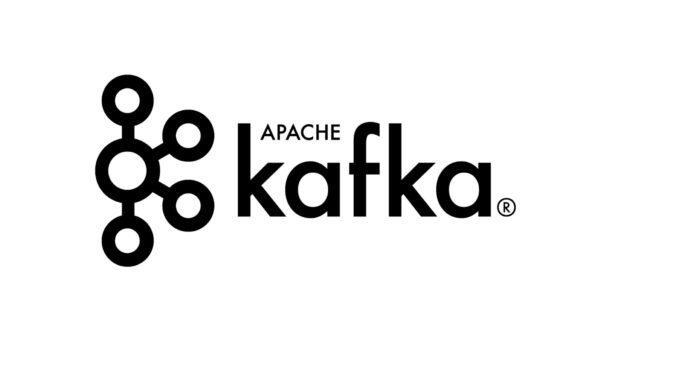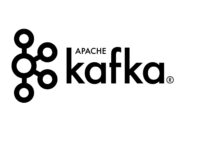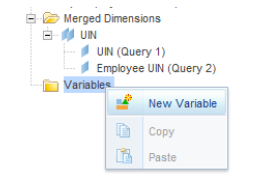Interview questions for Apache Kafka can vary depending on the role, but they typically focus on Kafka’s architecture, use cases, and practical troubleshooting.
1. Kafka Architecture
- What is Apache Kafka? How does it work?
- Purpose: To assess a candidate’s understanding of Kafka’s fundamental purpose and architecture.
- Explain the role of a Kafka producer and a Kafka consumer.
- Purpose: To gauge knowledge of Kafka’s core components.
- What are Kafka brokers and clusters? How do they function together?
- Purpose: Tests understanding of how Kafka distributes data.
- What is a partition in Kafka, and why is it important?
- Purpose: To assess the candidate’s understanding of scalability and fault-tolerance in Kafka.
- How does Kafka ensure message ordering and consistency across partitions?
- Purpose: Assesses the candidate’s understanding of message integrity in distributed systems.
- Explain the concept of a Kafka topic. How do producers and consumers interact with topics?
- Purpose: To see if the candidate understands how data is organized.
2. Kafka Internals
- What is the role of Zookeeper in a Kafka cluster?
- Purpose: Kafka relies on Zookeeper for management. This tests the candidate’s understanding of Zookeeper’s role.
- How does Kafka ensure fault tolerance and high availability?
- Purpose: To assess knowledge of Kafka’s replication strategy and failover mechanisms.
- What is Kafka’s ISR (In-Sync Replica) and how does it work?
- Purpose: To evaluate the understanding of replication and leader-follower relationships.
- Can you explain Kafka’s log retention policy? How do you configure it?
- Purpose: Tests understanding of data retention and durability in Kafka.
3. Kafka Performance Tuning
- How do you optimize Kafka performance? What configurations can improve throughput?
- Purpose: To gauge knowledge on tuning Kafka for high performance.
- What factors influence Kafka throughput and latency?
- Purpose: To assess understanding of performance bottlenecks.
- How do you handle large messages in Kafka, and what challenges might arise?
- Purpose: Tests knowledge of Kafka’s message handling limitations and potential solutions.
4. Kafka Data Durability and Reliability
- How does Kafka ensure data durability?
- Purpose: To assess knowledge of how Kafka persists data to disk.
- What is the difference between ‘at-most-once,’ ‘at-least-once,’ and ‘exactly-once’ semantics in Kafka?
- Purpose: To test the candidate’s understanding of Kafka’s delivery guarantees.
- How does Kafka handle message delivery failures?
- Purpose: To understand knowledge of retries and acknowledgment mechanisms.
5. Kafka Producers and Consumers
- How does Kafka ensure message reliability for producers?
- Purpose: To assess the understanding of acknowledgment mechanisms for producers.
- How does Kafka ensure consumer reliability and fault-tolerance?
- Purpose: To test knowledge of Kafka consumer groups and partition assignment.
- Explain how Kafka manages consumer offsets. How do you ensure accurate offset management?
- Purpose: Tests understanding of how Kafka tracks what consumers have read.
- What is a consumer group in Kafka, and why is it useful?
- Purpose: To assess the understanding of scaling consumption.
6. Kafka Connect and Streaming APIs
- What is Kafka Connect? How does it work?
- Purpose: To evaluate knowledge of Kafka’s ecosystem for integrating with external systems.
- Explain the difference between Kafka Streams and Kafka Consumer APIs.
- Purpose: To assess knowledge of Kafka’s real-time stream processing capabilities.
- What are some common use cases for Kafka Streams?
- Purpose: Tests understanding of Kafka’s stream processing applications.
7. Kafka Security
- How can you secure a Kafka cluster?
- Purpose: To assess knowledge of Kafka’s security features such as SSL/TLS, authentication, and authorization.
- What is the role of SASL in Kafka, and how do you configure it?
- Purpose: Tests knowledge of securing Kafka communication.
8. Kafka Troubleshooting
- What would you do if a Kafka consumer is reading too slowly?
- Purpose: To assess problem-solving skills regarding consumer lag.
- What are common reasons for Kafka producer failures, and how would you handle them?
- Purpose: Tests knowledge of troubleshooting Kafka producer issues.
- How do you handle Kafka broker failures? What are the recovery strategies?
- Purpose: To evaluate the candidate’s understanding of failure recovery in Kafka.
9. Kafka Use Cases and Practical Scenarios
- How would you design a Kafka solution for real-time log processing?
- Purpose: To test knowledge of applying Kafka in real-world scenarios.
- How would you integrate Kafka with a database? What considerations would you make?
- Purpose: To assess the candidate’s experience with integrating Kafka with other systems.
- What is the best way to scale a Kafka cluster?
- Purpose: To evaluate knowledge of scaling Kafka for high throughput and availability.
10. Advanced Kafka Topics
- What are the differences between Kafka and traditional messaging systems (e.g., RabbitMQ, ActiveMQ)?
- Purpose: To assess knowledge of Kafka’s unique advantages.
- Explain how Kafka’s Exactly Once Semantics (EOS) work.
- Purpose: To gauge an understanding of Kafka’s most complex data consistency feature.
- What is Kafka’s role in event-driven microservices architectures?
- Purpose: Tests understanding of Kafka in modern system design.
These questions range from basic to advanced, covering a broad spectrum of topics. Make sure to ask questions based on the interviewee’s experience level and the specific role requirements.
Here’s a structured and detailed explanation addressing each of the Apache Kafka interview questions. This will provide comprehensive answers for preparation:
1. Kafka Architecture
What is Apache Kafka? How does it work?
- Apache Kafka is an open-source distributed event streaming platform used for building real-time data pipelines and streaming applications.
- Kafka allows applications to publish (write) and subscribe to (read) streams of records in a fault-tolerant and scalable manner.
- Kafka works as a distributed commit log where data is stored in topics, partitioned across brokers, and replicated for reliability. Producers write data to topics, and consumers read data from topics.
Explain the role of a Kafka producer and a Kafka consumer.
- Kafka Producer: Publishes records (messages) to Kafka topics. Producers can write to specific partitions or use a partitioning strategy (e.g., round-robin, key-based) to distribute messages.
- Kafka Consumer: Reads messages from Kafka topics. Consumers are part of consumer groups to ensure load balancing and parallel processing.
What are Kafka brokers and clusters? How do they function together?
- Kafka Broker: A Kafka broker is a server that stores data (topics and partitions) and serves client requests (producers and consumers).
- Kafka Cluster: A cluster consists of multiple brokers that work together to distribute data and handle requests. Brokers share responsibility for partitions, and a leader broker for each partition handles reads and writes.
What is a partition in Kafka, and why is it important?
- A partition is a division of a Kafka topic that allows data to be split and stored across multiple brokers.
- Importance: Partitions ensure scalability (parallelism of reads/writes) and fault tolerance (replication across brokers).
How does Kafka ensure message ordering and consistency across partitions?
- Kafka ensures message ordering within a partition. Messages with the same key are always written to the same partition and consumed in the order they were produced.
- Across partitions, there is no global ordering; ordering is guaranteed only per partition.
Explain the concept of a Kafka topic. How do producers and consumers interact with topics?
- A Kafka topic is a logical name for a stream of records (e.g., logs, metrics, events). Topics are divided into partitions for parallel processing.
- Producers write messages to topics, and consumers subscribe to topics to read messages. Consumers can read data from partitions based on offsets.
2. Kafka Internals
What is the role of Zookeeper in a Kafka cluster?
- Zookeeper is responsible for managing Kafka metadata, including:
- Broker registration and leader election.
- Maintaining topic and partition configuration.
- Keeping track of in-sync replicas (ISRs) and other cluster states.
- Managing consumer offsets in earlier Kafka versions.
How does Kafka ensure fault tolerance and high availability?
- Kafka ensures fault tolerance by replicating partitions across brokers.
- If a broker fails, a replica can become the new leader for the partition, ensuring availability.
- High availability is achieved by distributing replicas across different brokers.
What is Kafka’s ISR (In-Sync Replica), and how does it work?
- ISR is a set of replicas (including the leader) that are fully caught up with the leader’s partition data.
- If a follower replica lags, it is removed from the ISR. Kafka guarantees data durability by only acknowledging writes to the leader if all ISRs replicate the data.
Can you explain Kafka’s log retention policy? How do you configure it?
- Kafka retains messages in topics based on:
- Time-based retention: E.g., delete messages older than 7 days (
log.retention.hours). - Size-based retention: Delete data once the topic exceeds a configured size (
log.retention.bytes).
- Time-based retention: E.g., delete messages older than 7 days (
- Logs can also be compacted to keep only the latest value for each key.
3. Kafka Performance Tuning
How do you optimize Kafka performance? What configurations can improve throughput?
- Key optimizations:
- Adjusting batch sizes (
batch.size). - Increasing compression (
compression.type). - Tuning producer acks (
acks). - Increasing partition counts for parallelism.
- Optimizing hardware: I/O, network, and CPU.
- Adjusting batch sizes (
What factors influence Kafka throughput and latency?
- Factors include:
- Message size.
- Number of partitions.
- Broker hardware resources (CPU, disk).
- Network bandwidth.
- Configuration of producer acks and consumer prefetch sizes.
How do you handle large messages in Kafka, and what challenges might arise?
- Use message compression (e.g., Snappy, Gzip).
- Increase
fetch.max.bytesandmessage.max.bytesconfigurations. - Challenges include network delays, broker memory pressure, and slower processing.
4. Kafka Data Durability and Reliability
How does Kafka ensure data durability?
- Kafka persists messages to disk immediately upon write.
- Durability is ensured via replication. Leader brokers replicate messages to followers in the ISR.
What is the difference between ‘at-most-once,’ ‘at-least-once,’ and ‘exactly-once’ semantics in Kafka?
- At-most-once: Messages are delivered at most once (possible data loss).
- At-least-once: Messages are delivered at least once (duplicates possible).
- Exactly-once: Messages are delivered exactly once (Kafka achieves this using idempotent producers and transactions).
How does Kafka handle message delivery failures?
- Kafka retries sending messages based on producer configurations (
retries). - Acks ensure messages are only acknowledged upon successful replication.
5. Kafka Producers and Consumers
How does Kafka ensure message reliability for producers?
- By using acks:
acks=1: Leader acknowledgment.acks=all: All ISRs must replicate the message before acknowledgment.
How does Kafka ensure consumer reliability and fault-tolerance?
- Kafka uses consumer groups and offsets. If a consumer fails, Kafka reassigns partitions to other consumers in the group.
Explain how Kafka manages consumer offsets. How do you ensure accurate offset management?
- Kafka stores offsets in internal topics (
__consumer_offsets). - Offsets can be auto-committed (default) or manually managed for accuracy.
What is a consumer group in Kafka, and why is it useful?
- A consumer group is a set of consumers sharing the same group ID.
- It enables parallel consumption and load balancing.
6. Kafka Connect and Streaming APIs
What is Kafka Connect? How does it work?
- Kafka Connect is a framework for integrating Kafka with external systems using connectors. It can run in standalone or distributed mode.
Explain the difference between Kafka Streams and Kafka Consumer APIs.
- Kafka Streams: A library for building real-time processing pipelines (stateful).
- Consumer APIs: Lower-level API to consume messages directly.
7. Kafka Security
How can you secure a Kafka cluster?
- Use SSL/TLS for encryption, SASL for authentication, and ACLs for authorization.
8. Kafka Troubleshooting
What would you do if a Kafka consumer is reading too slowly?
- Check for consumer lag. Optimize batch sizes and processing logic.
9. Kafka Use Cases and Practical Scenarios
How would you design a Kafka solution for real-time log processing?
- Use producers to send logs to Kafka topics. Consumers process logs in real time.
10. Advanced Kafka Topics
What are the differences between Kafka and traditional messaging systems (e.g., RabbitMQ, ActiveMQ)?
- Kafka is designed for high throughput, fault-tolerance, and scalability using distributed logs, whereas RabbitMQ focuses on message queuing with richer routing.









